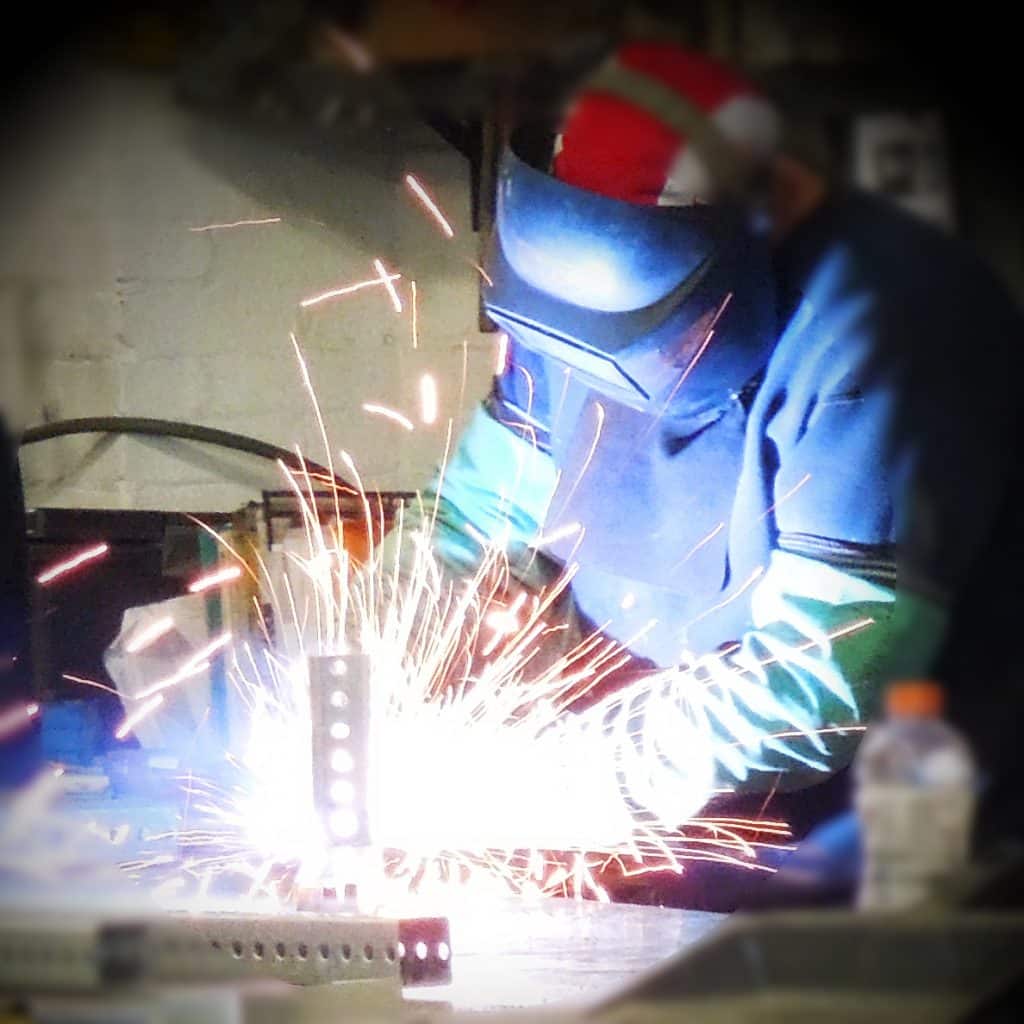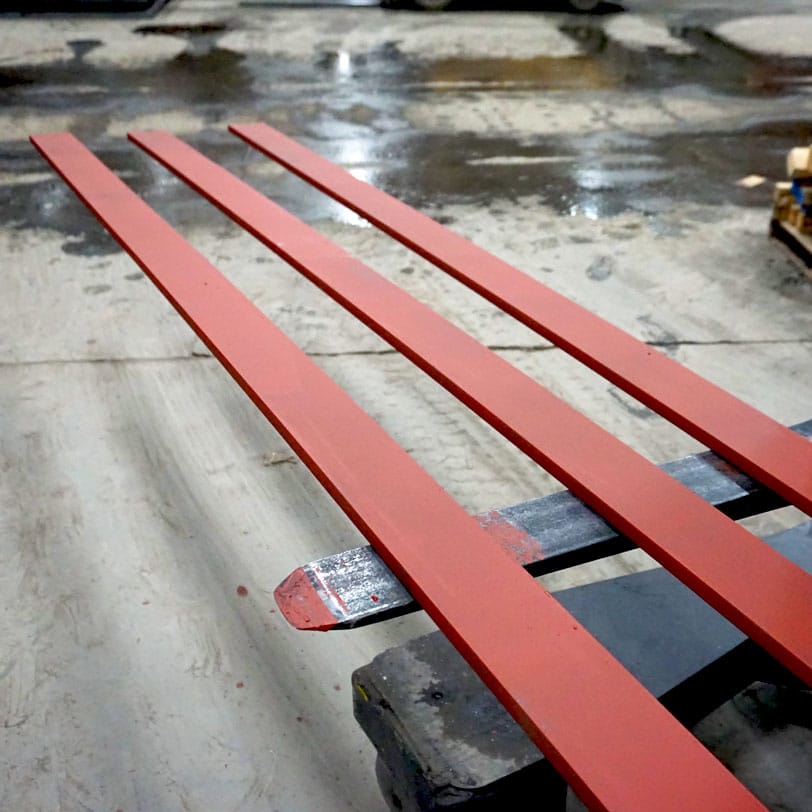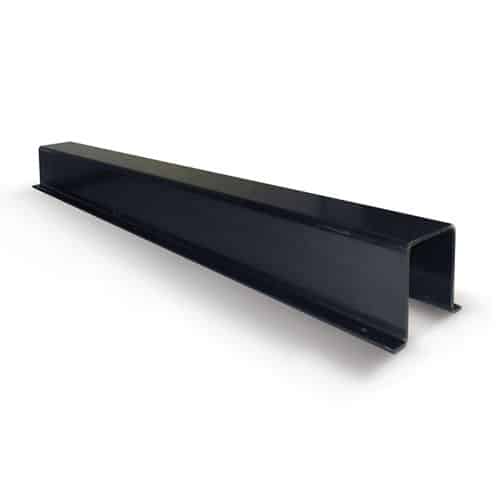Welding and Metal Fabrication
Highly Skilled Team of Certified Welders on Staff
The Metal Fabrication Services (MFS) Division of Eberl Iron Works has a number of highly skilled welders on staff. Our senior welder has been welding with us for more than two decades and brings invaluable knowledge and experience to our team.
Our staff includes fully certified welders who specialize in MIG welding operations. Although our welding department is not limited to MIG welding alone, we generally prefer it because it increases speed and job efficiency, allowing us to turn your order around that much more quickly.
Additionally, MIG welding is a very versatile form of welding and can be used to successfully weld every thickness of metal. It creates a strong, lasting bond on everything from fine, 26 gauge sheets to thick structural plates.

Metals We Can Weld
- Carbon Steel
- Stainless Steel
- Aluminum
Ask Us About Other Welding Services Available
Here at Eberl Iron Works, we don’t just do MIG Welding. Our team of highly skilled welders are competent in many other forms of welding, including TIG Welding, Spot Welding, Stick Welding and more. Be sure to let us know if your custom job requires a custom approach. We’ll do everything we can to accommodate your special request.
Cobot Welding
Employing a Robot Welder for Fast, Precise Welds
Metal Fabrication Services has added Cobot Welding to our ever-expanding list of service offerings.
With the recent purchase of our Vectis Standard-Duty, Air Cooled Welding Cobot we have the ability to turn out clean, accurate, consistent, high quality welded parts faster than ever before. Employing welding robots allows us to boost our productivity, by increasing the efficiency of repetitive welding jobs, and ultimately lower costs to our customers.
Faster Production Equals Shortened Lead Times
Automating welding production with the use of a robotic welder has also helped us speed up production to shorten our lead times even further. We are now able to complete the same job as much as four times faster and get parts out the door, and to where they’re needed, in much less time.
Request a Quote today on your next metal cobot welding project!
Stud Welding
Introducing Our Newest Acquisition!
Eberl Iron Works has added in-house Stud Welding services to our Metal Fabrication department’s ever-expanding list of offerings.
Our Nelson Nelweld Model 6000 Stud Welder was purchased in early 2023 and the sparks have been flying ever since! With a dual gun system configuration, we are able to securely fasten studs to metal in a fast, clean, and consistent process that lends itself perfectly to assembly-line style manufacture of embed plates, weld plates and more!
Machine Capabilities / Duty Cycle:
Rated at continuous operation
1 in. (25 mm)
7/8 in. (22 mm)
3/4 in. (19 mm)
5/8 in. (16 mm)
1/2 in. (13 mm)
3/8 in. (10 mm)
5/16 in. (8 mm)
1/4 in. (6 mm)
3/16 in. (5 mm)
10 per minute
13 per minute
20 per minute
25 per minute
30 per minute
unlimited
unlimited
unlimited
unlimited
Dual NS 20 N HD stud welding guns are able to be operated concurrently, which means we can knock your project out in a fraction of the time that it would take with more traditional welding techniques.
Request a Quote today on your next metal stud welding project!
Primer Coat Painting
Red Iron Oxide Primer Coating
We offer primer coating services for our ferrous metal products, using red oxide paint. Red oxide primer is a specially formulated for use as a base coat for ferrous metals, or metals that contain iron, to inhibit the formation of rust.
Red oxide primer coat gives steel surfaces a layer of protection and also prepares their surface to receive a top coat. It is both weldable and paintable.
If there are trace amounts of rust present on the steel’s surface, red oxide primer paint will still adhere to it, because it forms a chemical bond with the surface of the steel. This both eliminates any small amounts of rust that may have been present as well as prevents new rust from forming.

Hot Dip Galvanizing
A Cost Effective Way to Protect Against Corrosion
During the hot dip galvanization process, steel is submerged in a vat of molten zinc. The iron in the steel bonds with the zinc and forms a protective coating that prevents moisture from making contact with the steel. This protects the metal from corrosion and rust.
In addition to hot dipped pieces being both rust and abrasion resistant, they also require no maintenance. Once dipped, steel parts and channels should remain rust free for life, making them perfect for high moisture and/or outdoor applications.
A Little Bit About the Process
Before the steel can be dipped, it must first be properly prepared to ensure maximum adhesion of the zinc coating. First, the steel is cleaned, degreased, pickled – to remove any scale or rust – and finally it is fluxed. Only then can the steel be dipped.
Steel is typically introduced to the molten zinc bath at an angle so that no air pockets can form in the coating. Otherwise, air pockets might mar the finish as well as reduce its efficacy and corrosion resistance factor.
What We Can Hot Dip Galvanize
- Metal Strut Channel
- Fabricated Parts
- Bent Plate
- and more!
Powder Coating
A More Durable Surface than Paint
Powder coating metal surfaces provides more resistance to chipping, scratching, and other wear than painting does. This is because the powder coat is thermally bonded to the metal during the curing (or baking) process. Powder coatings can also be applied in much thicker layers than paint can, which provides even more protection.
Powder coated surfaces are much more resistant to damage caused by impacts, moisture, chemicals, ultraviolet light, and weather than painted surfaces.
About the Powder Coating Process
Powder coating is a dry finishing process where a fine powder, consisting of pigment and resin particles that are electro-statically charged, is sprayed onto the surface of the metal and then baked on. The particles are thermally bonded to the metal during curing.
Items to be powder coated are pre-treated, which may include this include chemical cleaning, media blasting, degreasing, and/or conversion coatings, to ensure long-lasting adhesion and superior protection.
The curing, or baking, process melts the particles together and fuses them into a solid coating, once hardened, that is both durable and decorative.
What Materials We Can Powder Coat
- Mild Steel
- Galvanized Steel
- Electroplated Steel
- Stainless Steel
- Aluminum

